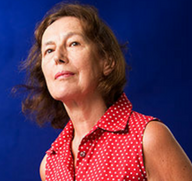You are viewing your 1 free article this month. Login to read more articles.
Books in the Media: Claire Tomalin's The Young H G Wells strikes a chord
The Young H G Wells by Claire Tomalin (Viking) was the most reviewed book this week as it picked up mentions in the Guardian, Telegraph, Times, Sunday Times, Daily Mail, New York Times, Irish Times, Washington Post, Spectator USA and Wall Street Journal.
Anthony Roche from the Irish Times remarked Tomalin’s biography of H G Wells “a wonderfully readable and fascinating account of the life of H G Wells”.
The Guardian’s Anthony Cummins named the biography their book of the day discussing how “Tomalin’s decision to restrict herself to the “young” Wells never strikes the reader as anything but pragmatic, despite her explanation that she found herself particularly drawn to the phase of his best-remembered fiction.”
Tomalin’s latest biography was featured twice this week in the Daily Mail, who named it their book of the week applauding Tomalin for her level of research into Wells saying: “While all who encountered him were left in no doubt of Wells’s ‘driving will and intelligence’, what Tomalin shows is that he was a chronic invalid, always suffering from breakdowns and kidney problems, made worse by a rugby accident.” Also, in the Daily Mail Kathryn Hughes gave it five stars saying: “In this brilliantly engaging story of the first 40 years of Wells’s life, Claire Tomalin cannot hide her admiration for a man who never forgot what it felt like to be hungry.”
Likewise, the Times named it their book of the week as Laura Freeman said: The story of the young Wells is the story of “insurmountable obstacles”. It also made their “the best books of 2021” article.
In the Sunday Times John Carey described the biography as “compact but richly informative.”
The biography was also reviewed in the Daily Telegraph by Nikhil Krishnan: “Tomalin’s book is not, then the comprehensive reassessment for our times, but there is enough here to fascinate, to surprise, and to appal.”
Over in the US, Frances Wilson at the Spectator USA, said: “Claire Tomalin is alert to the life of the body as well as the mind. In her hands, Wells’ youth was less about his rise from the lower classes to become the wealthy socialist who predicted the airplane, the tank and the atomic bomb than about the rise of his weight. There is never a point in these pages when we are not told what numbers Wells saw when he stood on the bathroom scales, or reminded of the connection between his physical evolution and his evolution as a writer.” Claire Tomalin was also the Spectator’s "Book Club" podcast guest, this week.
Heller McAlpin at the Wall Street Journal said: “Ms Tomalin reconstructs Wells’s remarkable path—“charge” is more like it—from inauspicious beginnings to a position of affluence and influence.”
The Washington Post criticised Claire Tomalin’s latest biography as being “plainly written, packed with incident and justly admiring without being uncritical.” But also highlighted it as “for a compact overview of this endlessly fascinating man and writer, Tomalin’s The Young H G Wells is hard to beat, being friendly, astute and a pleasure to read.”
The Young H G Wells: Changing the World was also featured in the New York Times “5 New Biographies to Read This Season.”
Over in fiction, The Promise by Damon Galgut (Chatto & Windus) featured a lot this week as the novel won Galgut the Booker prize. However, Peaces by Helen Oyeyemi (Faber & Faber) came out on top as it was reviewed in the Guardian, Telegraph, Financial Times, New Statesman, iNews and Scotsman.
The novel was named the Guardian book of the day hailing the impressive writing of Oyeyemi. Beejay Silcox said “Helen Oyeyemi is a bamboozler, a discombobulator, a peddler of perplexity. She crushes fables and fairytales down to a powder and then laces her fiction with it like some kind of literary hallucinogen. Her novels should come with pharmaceutical warning labels: do not operate heavy machinery under the influence. Symptoms may include slurred realism and a persistent allegorical itch.”
iNews’ Alys Key said” “Peaces is a satisfying read, its central mysteries built well enough to prompt rumination rather than frustration. It is funny, inventive and alluring—and Oyeyemi fans will find much to their liking.”
In the Scotsman, Stuart Kelly said: “Helen Oyeyemi’s new novel is about the oneiric and nominative determinism".
Helen Oyeyemi was interviewed in the Financial Times by Max Liu where they discussed how in her latest novel “she wanted to evoke ‘that intense, uncanny, dreamlike limbo that is train time.’” Previously Oyeyemi’s short story collection was named by the Financial Times as one of the “Best books of 2016: Fiction”
Over in the New Statesman, Peaces was reviewed in short by Elliot Hoste who said: “The novel is concerned with love’s myriad impressions, and what transpires when they go unnoticed. It’s the unpredictability of this journey that lends the story its emotional life force.”
Finally, the Telegraph’s Francesca Carington gave Oyeyemi’s seventh novel four out of five stars commenting that Oyeyemi’s novels are “uncanny worlds in which things are never what they seem; or in which things are usually two things at once.”



















